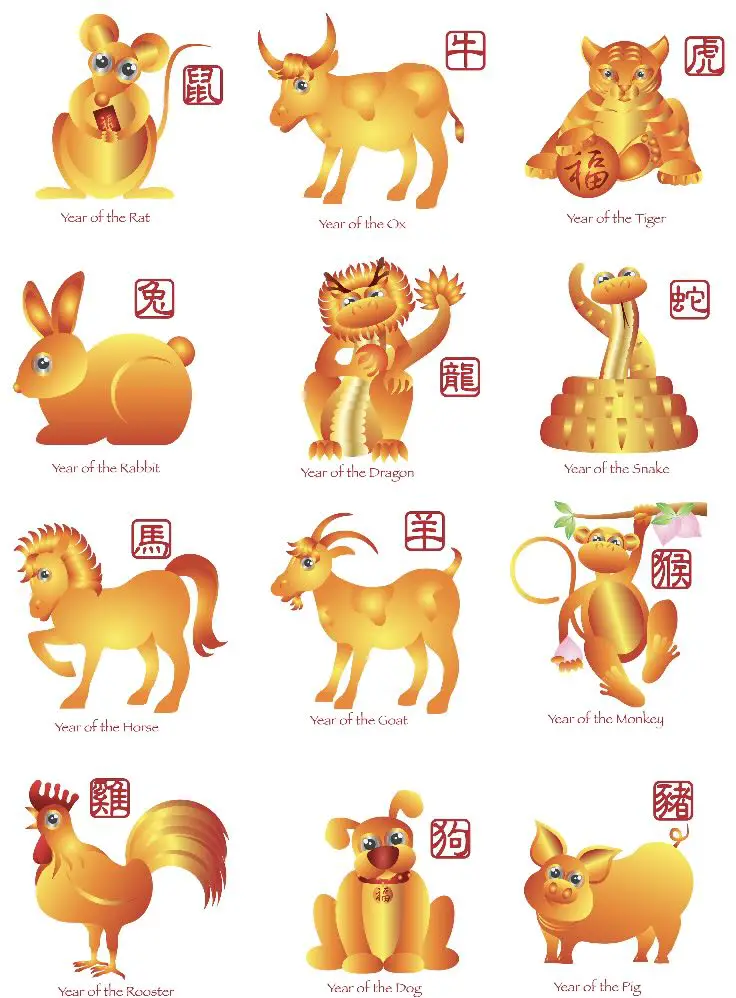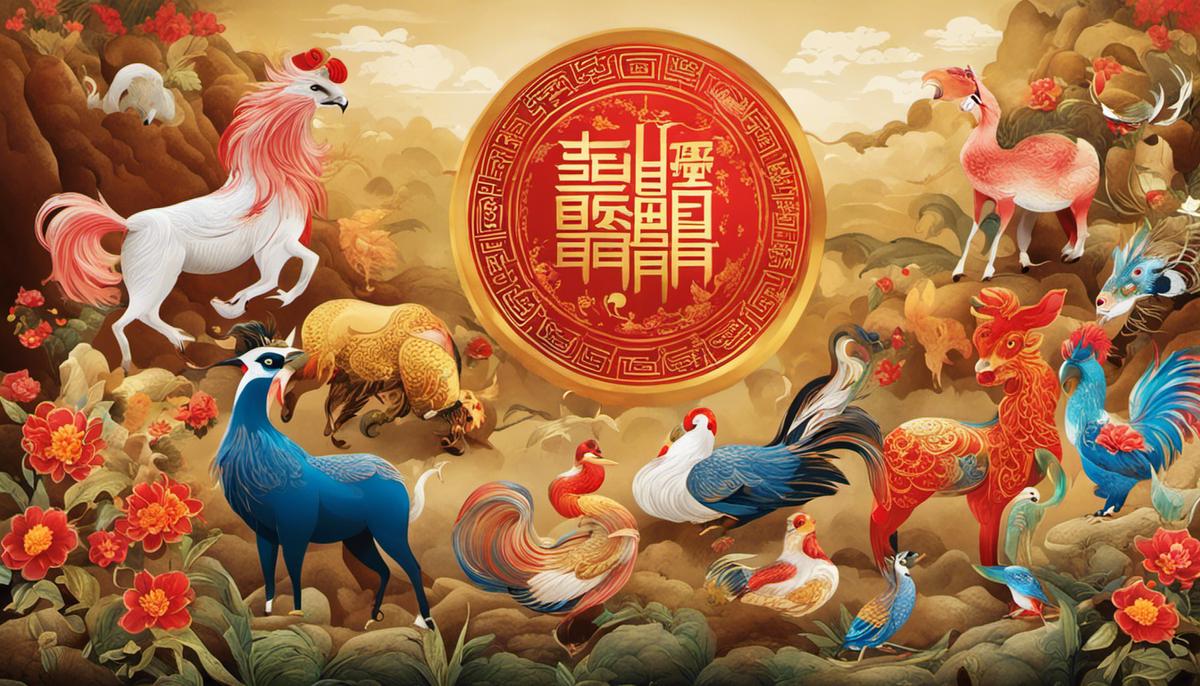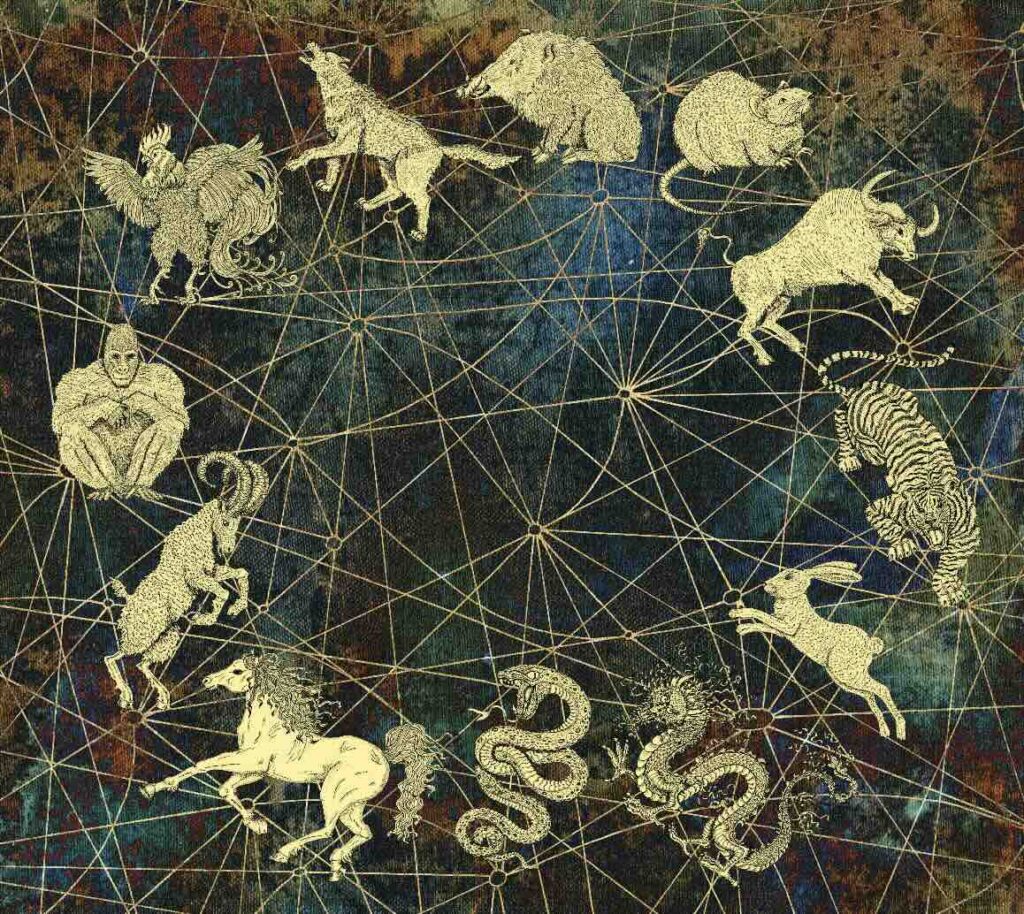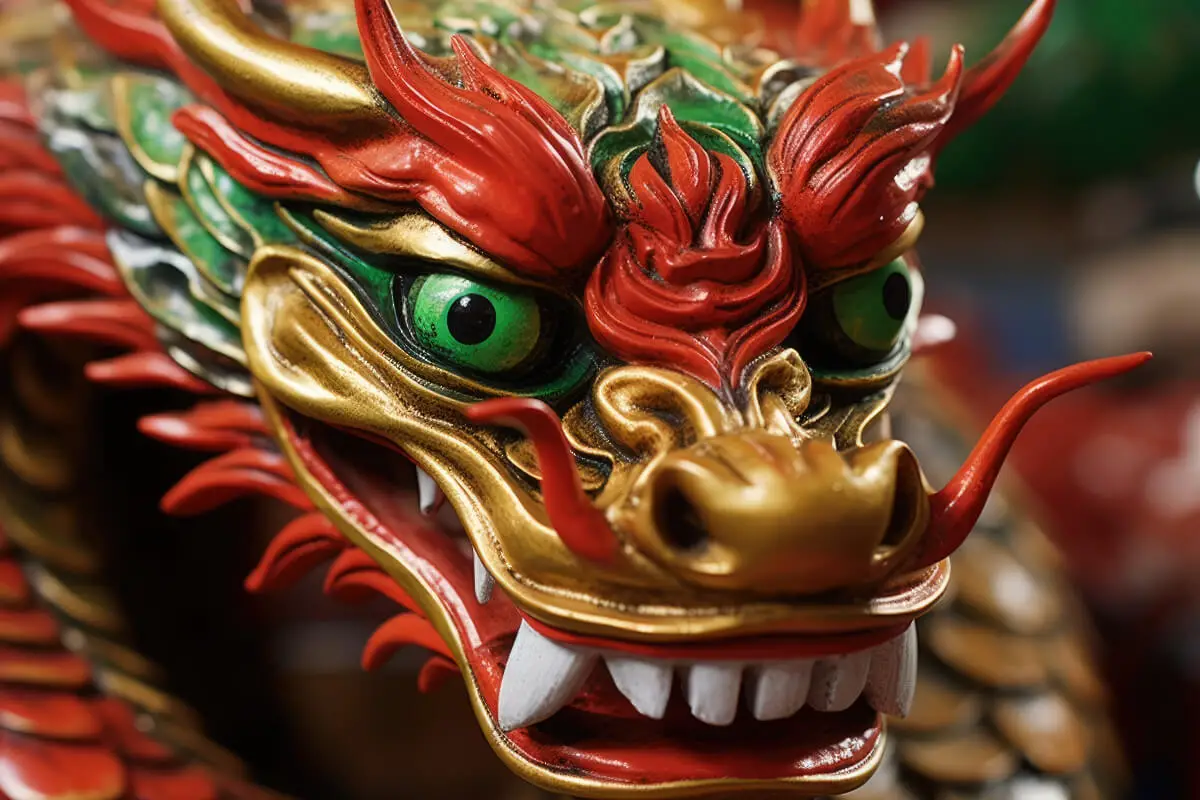Immersed deeply in tradition, the Chinese Zodiac symbolizes much more than a cyclic calendar of animal signs – it captures the essence of a cultural belief system that has persevered through millennia. Intricately woven into the fabric of Chinese society, the Zodiac shapes various aspects of life, from personality traits and fortune to life decisions like career selection and marriage compatibility.
Grasping the concept of the Chinese Zodiac takes more than a surface understanding of its 12 animal symbols – it requires an exploration into its rich history, the diverse New Year celebrations it influences, and its strong convergence with Chinese astrology. Read on as we explore more about the Chinese Zodiac System and what it means.
Table of Contents
- Understanding The Chinese Zodiac System
- Celebrations Of The Chinese Zodiac New Year
- Chinese Zodiac Influence On People’s Lives
- Chinese Zodiac And Astrology
- Related Questions
Understanding The Chinese Zodiac System
Decoding The Mysteries: Unique Features And Significance Of The Chinese Zodiac System
Dive into the fascinating world of Chinese astrology, and you’ll discover a complex, vibrant system that not only predicts personality traits but also life events. This system has remained constant for over 2000 years yet remains as relevant today as it was in ancient times.
One of the key characteristics that sets the Chinese Zodiac system apart is the 12-year cycle. Each year in this cycle is represented by a specific animal sign: Rat, Ox, Tiger, Rabbit, Dragon, Snake, Horse, Goat, Monkey, Rooster, Dog, and Pig.
But there’s more to it than just animal labels. Each creature brings many traits and overlays with its element – Wood, Fire, Earth, Metal, or Water. This results in a unique forecast for individuals born under that sign in their birth year, shaping their personalities and destiny.
The Chinese Zodiac isn’t just about years. It extends its influence to months, days, and even hours, each governed by a particular animal sign. This level of detail adds more texture to the personality chart and allows a deeper understanding of a person’s characteristics, compatibility, and even predictably making confident life choices.
Crucially, the Chinese Zodiac includes a concept unique to Chinese astrology: Yin and Yang. Each animal sign is additionally classified as either Yin (passive) or Yang (active). This duality further refines the personality traits of each animal sign, providing a balanced view of an individual’s characteristics.
Every 12 Years, The Chinese Zodiac Will Repeat Itself
Here’s another fun twist. Every 12 years, the entire cycle repeats itself, but with a different associated element. Each animal-element combination occurs once every 60 years! This unique feature allows for a broad, meticulous presentation of characteristics and tendencies, bringing forth a wealth of information to guide life decisions and understand personality blends.
The Chinese Zodiac system isn’t merely about predicting futures or matching compatibility. It is culturally embedded and has a significant influence on numerous facets of Chinese society. From celebrating the Lunar New Year to societal norms based on Zodiac predictions, this astrology system influences several customs and practices, making them deeply cherished and steeped into everyday life.
The Chinese Zodiac system, in its complexity and detail, offers more than just sun sign astrology. It’s the art of understanding the interplay of various aspects shaping an individual’s life.
Each element and its association with a particular animal is a fascinating jigsaw puzzle, unlocking an insightful awareness about oneself casting its ripples far and wide into matchmaking, career choices, and life path journeys.
Studying The Chinese Zodiac Is A Passion For Many
In the realm of hobbies, studying the Chinese Zodiac system is not just an interest; it’s a passion. It’s an intriguing field combining astrology, history, culture, and psychology. For those ready to delve more deeply than just the surface, embarking on this journey will be an enriching and insightful experience.
An exploration of the Chinese Zodiac is indeed a beautiful blend of self-discovery and the understanding of others, wrapped in the rich tapestry of a culture that has stood the test of time. Happy Exploring!

Celebrations Of The Chinese Zodiac New Year
The Majesty of the Lunar New Year: Celebrations Involving the Chinese Zodiac
When the time comes to bid farewell to the old year, according to the Chinese Zodiac system, celebrations are steeped in ancient tradition, cultural reverence, and joyful anticipation. It all crescendos with Lunar New Year, the most important traditional holiday in China, which has been celebrated for more than 4,000 years.
One of the most striking aspects of Lunar New Year celebrations is how they honor and incorporate the rich history of the Chinese Zodiac. Each year is represented by one of the twelve animal signs, coupled with one of five elements, creating a 60-year cycle known as the Sexagesimal Cycle.
While the Chinese Zodiac system has a significant influence over the people of China, its captivating richness has also sparked interest globally. Today, Lunar New Year celebrations can be seen in various parts of the world, with each local culture adding its interpretive spin.
In China, Lunar New Year celebrations are deeply rooted in tradition. These grand celebrations might continue for up to 15 days, with the Lantern Festival marking the end of the celebratory period. This is also when the Chinese Zodiac system takes center stage, with various festivities centered around the zodiac animal of the coming year.
Apart from China, the tradition of Lunar New Year celebrations traveled with Chinese migrants to Southeast Asia, and today, countries like Singapore, Indonesia, Vietnam, and more have their unique festivities.
The lion dances of Singapore, colorful lantern festivals in Taiwan, and dragon boat racing in Hong Kong all lend a unique flavor that beautifully amalgamates the cultural diversity of these landscapes with the essence of the Chinese Zodiac system.
Moving further west, Lunar New Year and Chinese Zodiac celebrations have become popular. Cities with large Chinese communities, such as Vancouver, Sydney, and San Francisco, hold vibrant parades, cultural performances, and fireworks displays.
In London, the event is marked with exuberant celebrations in the city’s Chinatown. Each celebration echoes the animal sign reigning in the New Year, exhibiting how integral the Chinese Zodiac system is, even far from its origins.
The fascination with the Chinese Zodiac theme doesn’t restrict itself to cultural celebrations. It even taps into the virtual world, with numerous sites, cellphone apps, and online communities dedicated to exploring and understanding the rich tapestry of Chinese astrology, further ensuring the global reach of this ancient system.
The essence of Chinese Zodiac celebrations lies not just in grand parades, fireworks, and feasts. It’s in the bonds that are strengthened as families and communities gather. It’s in the spirit of renewal, reflection, and the excitement for what lies ahead.
Amidst all these, one cannot help but cherish the intricate influence of the rotating cast of zodiac animals that adds a unique charm to these celebrations. And as the colors of the Chinese New Year festivities fade away, one can only wait, with bated breath, for what the next zodiac sign brings along.

Chinese Zodiac Influence On People’s Lives
Revamping the journey of studying and engaging with the enthralling world of the Chinese Zodiac, it is impossible to overlook the profound influence it possesses in the lives of those who follow it devotedly.
Offering a plethora of insights and wisdom, the Zodiac not only navigates through one’s personal life path but also shapes societal constructs, making this hobby both meaningful and engaging.
While the animal signs and their elemental overlaps have a grip on shaping one’s personality and destiny, they also offer startlingly accurate insights into compatibility metrics.
Not confined to love alone, these compatibility studies seep into professional partnerships, friendships, and even familial bonds. The idea of some signs exhibiting more synchronicity than others is intriguing and helpful, often guiding relational dynamics within Chinese communities and those who swear by the Zodiac readings.
Beyond personal realization and relationships, the Chinese Zodiac also vests immense significance in fields such as health and wellness. Each animal sign is allied with certain body parts and health tendencies, aiming at personalized healthcare approaches.
Practitioners often apply their understanding of Zodiac elements to suggest lifestyle adaptations, food habits, and healing practices, merging medical science with Zodiac wisdom.
The Zodiac also plays a crucial role in decision-making. From choosing the correct career paths to buying a new house or even picking a suitable color scheme, Zodiac signs seem to have a say in everything.
This astrological guidebook promises prosperity and misfortune avoidance in its followers’ lives, making the Zodiac an indispensable aspect of their day-to-day existence.
Furthermore, an exciting domain this hobby extends into is the world of entertainment. Chinese literature, film, music, and even pop culture find roots in their zodiacal representation.
Characters often embody traits of specific Zodiac animals, and the narrative often rotates around the Zodiac and its implications, making it a popular device used by creative minds.
What passion can possess the power to seep so deeply into a personal and societal framework that it no longer remains just interest but becomes a way of life, a bridge to wisdom, and a guide to navigating through the labyrinth of life?
Only the captivating world of the Chinese Zodiac is a true testament to the extraordinary amalgamation of entertainment, wisdom, and profound knowledge. So keep delving into its depths, and there’s always a new facet to be discovered, a new pathway to be explored.

Chinese Zodiac And Astrology
Now, let’s dive into the intriguing correlation between the Chinese Zodiac system and Astrology. We’ll venture into the enigmatic realm of how these two intriguing domains intertwine, amplifying their influence on our understanding of self, others, and the universe.
Astrology, as we know, is not just about your sun sign or the newspaper’s horoscope but a profound study of celestial bodies’ alignment at a given moment. All this celestial knowledge closely ties to how the Chinese Zodiac system works, establishing a fascinating blend of astronomical principles and symbolic meaning.
Firstly, let’s talk about the Chinese Lunar Calendar, the bedrock of the Chinese Zodiac system. Similar to astrology, it’s a lunisolar calendar that considers both the moon phase and the time of the solar year. Its intricate structure harmonizes the solar and lunar cycles like astrologers harmonize celestial positioning with Earth’s seasons.
Astrology and the Chinese Zodiac system share a common thread of elemental lore— Earth, Water, Fire, Wood (commonly compared to Air), and Metal (akin to Spirit or Aether). These elements add meaningful layers to Zodiac animal traits through their respective transformative processes, just like astrological signs are endowed with qualities of their ruling element, enriching the nature of their expression.
Then comes the concept of compatibility, a favorite topic for anyone delving into Chinese Zodiac and astrology. In Western Astrology, love compatibility is primarily based on element groups and the interaction between celestial bodies, especially Venus and Mars. Similarly, the Chinese Zodiac system suggests that certain animal signs naturally harmonize with others, mimicking astrology’s elemental compatibility.
The Chinese Zodiac system also believes in the profound impact of birth time on a person’s characteristics and fate. A particular animal sign rules every two hours of a day, much like the concept of Rising Signs or Ascendants in astrology, which changes every two hours and greatly influences personality traits.
Lastly, the world of astrology encapsulates not just the twelve sun signs but a plethora of asteroids, celestial points, and houses. This might feel labyrinthine for some, but it reflects the complexities of human life, very akin to how the depth of the Chinese Zodiac goes well beyond the 12 animal signs, venturing into per-hour, per-month signs, and so much more.
In essence, the Chinese Zodiac system and astrology play two symphonies composed by nature’s grand orchestra. Yet, interestingly, it is their similar use of intricate systems, their commitment to linking celestial bodies with the essence of humans, and the shared belief in cyclical occurrences and pattern recognition perfectly harmonize these two age-old traditions.
They underscore the beauty of existence, validating the saying above, so below,” encouraging us to explore, understand, and resonate with the rhythm of this vast cosmic dance we are part of.

The magnificent tapestry of the Chinese Zodiac and its New Year celebrations is an artistry of culture, belief, and tradition that has sustained, adapted, and flourished over centuries. Its influence, transcending boundaries and generations, is not confined to the esoteric realms of astrology; it forms the cornerstone of everyday life for millions of people worldwide.
The enduring relevance of the Chinese Zodiac, with its profound impact on people’s lives, is a testament to the resilience and richness of an ancient system that will continue to inspire, guide, and captivate generations to come.
At A Bus On A Dusty Road, we talk about history, travel, life, sailing, and ex-pat living. We are all about “Living Life As A Global Citizen.” We explore social, cultural, and economic issues and travel.
We would love to have you be part of our community. Sign up for our newsletter to keep up-to-date by clicking here. If you have any questions, you can contact me, Anita, by clicking here.
Listen to our Podcast called Dusty Roads. You can find it on all major podcast platforms. Try out listening to one of our podcasts by clicking here.
Subscribe to our A Bus On A Dusty Road YouTube Channel filled with great videos and information.
Related Questions
What Is the Origins Of The Name China?
In Chinese, the name for China is “Zhongguo,” or the middle kingdom. China is the term that most of the world knows or recognizes, not “Zhonggu” or the Middle Kingdom.
China’s name comes from the Sanskrit name “Cina” The name refers to the Qin Dynasty, the first dynasty to rule China. The name “Cin” or “Chin” was not seen in Western writings until the early 16th Century.
You can discover more by reading What Is the Origins Of The Name China? by clicking here.
Where Is The Ching Ming (Qing Ming) Festival Celebrated?
The Ching Ming (Qing Ming) festival is celebrated in most parts of Asia, especially in any country with a large Chinese community. Not all countries will celebrate this cultural festival as a public holiday, but in many parts of Asia, you will find people taking time off work as they need to go with their families to their family gravesites.
You can learn more by reading Where Is The Ching Ming (Qing Ming) Festival Celebrated? All About by clicking here.
Is Hong Kong A Separate Country Or A Part Of China?
Hong Kong and China have basic laws similar to what we would in the United States consider our constitution or our rights as individuals and citizens of a country. This fundamental law clearly states that Hong Kong is part of China’s country.
By clicking here, you can discover Is Hong Kong A Separate Country Or A Part Of China?

